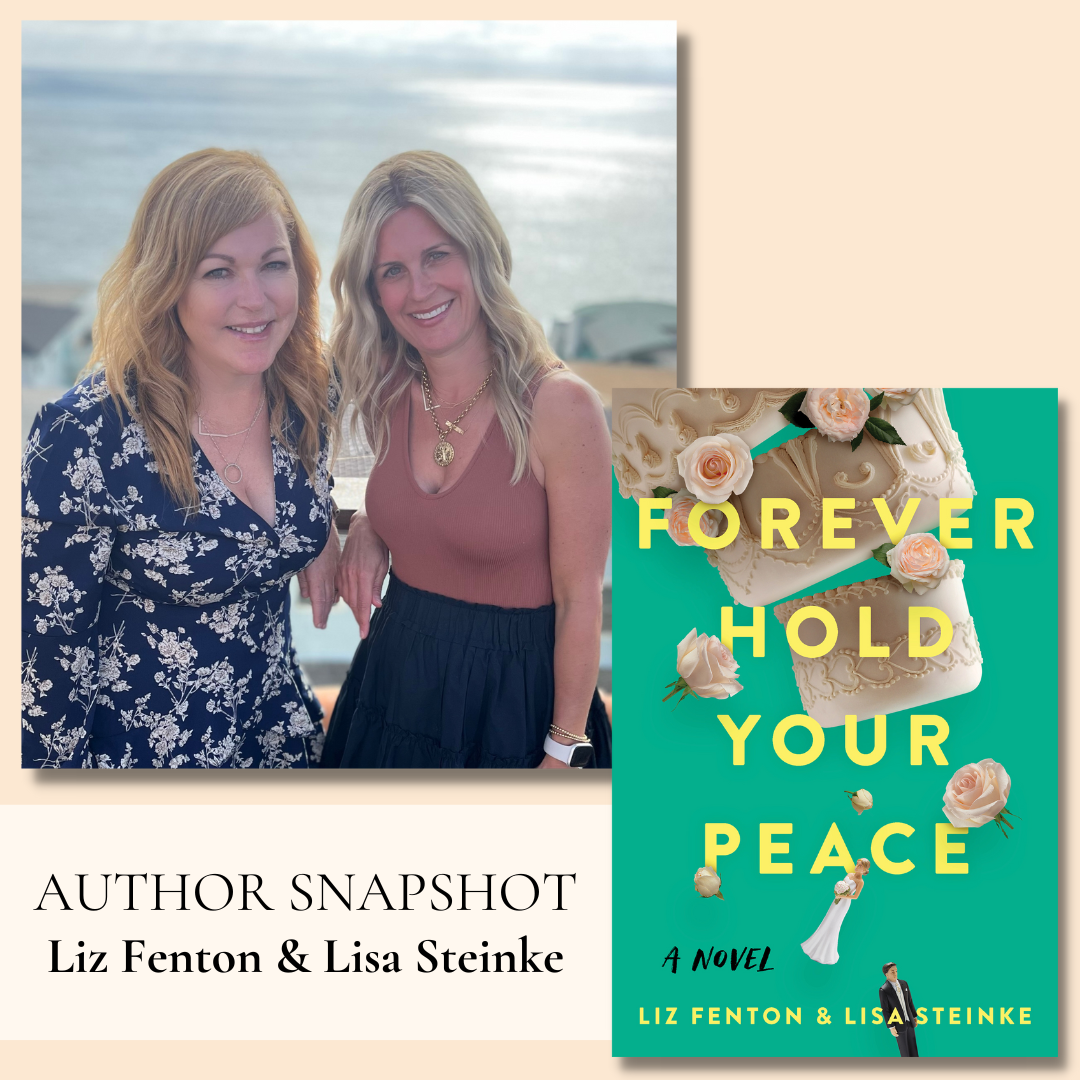Advice on Maintaining Long Friendships with Liz Fenton and Lisa Steinke
Book jacket biographies don’t tell us nearly enough about the authors we love. That’s why Zibby Mag launched the Author Snapshot, giving readers an inside look at the lives and work of our favorite writers.
This week we are featuring author duo Liz Fenton and Lisa Steinke, whose novel Forever Hold Your Peace releated on July 11th.
You’ve said Forever Hold Your Peace is a perfect combination of Father of the Bride and Bride Wars. Are these iconic friendship, family, and wedding stories the inspiration behind the book?
Yes! We wanted to explore a multi-generational story about the complexities of family, love, and forgiveness. Of course we thought that a wedding would be the perfect backdrop to bring all these elements together!
We’re so inspired by how your friendship has endured over thirty years and evolved into being writing partners. Can you tell us a little about how you’ve managed to remain friends and work together?
It’s been a journey, and to be honest, a challenge at times. It can be difficult to merge a friendship into a business, especially a creative one. We’ve made every single mistake you can make! But we’ve survived them by being committed to learning and growing from each one. We’re constantly asking ourselves: what can we do better next time? And forgiveness is a vital component—grace not only for each other, but for ourselves. That is key.
What is it like working with your best friend, and how has this impacted your work and your friendship?
It has taught us so much about empathy and compromise. Liz likes to make decisions quickly and Lisa would prefer to scour every detail. We used to butt heads constantly over this dynamic, but finally realized that we could use the difference to make us stronger—Lisa helps Liz slow down, Liz helps Lisa take leaps of faith more often. It’s probably fair to say we are more actualized than most best friends—in many ways our partnership is like a marriage!
How is Forever Hold Your Peace different from your other novels, and what are you hoping readers will take away from it?
We were at a career low when we wrote this novel. We had no idea if anyone would read it! And that can be freeing for an author—to write with no expectations. In many ways, we wrote this book for each other. It’s fun, it’s light, and the characters June and Amy are dealing with some of the same things we are—aging and figuring out how to let their kids become adults. And as we mentioned before, there is a heavy theme of forgiveness—should you forgive? Does it mean what the other person did to you was okay? Or is forgiveness of others a gift you give to yourself?
Has your writing partnership evolved over the years, and if so, how? What are some of the most exciting and challenging aspects of co-writing a novel?
Writing a novel with someone is incredibly fun, but also challenging. Since we’ve only written together, we don’t know any better! The biggest hurdle is that you aren’t in total control. Someone else is editing your work constantly, and making changes. You may not agree on plot points. You may not agree on the ending! And of course, it’s all subjective. Creative endeavors rarely have a definitive right or wrong answer. That is where all the compromise comes in. For us, we’ve had to learn to trust one another. Liz knows that if Lisa is deleting a line she loves, there is a valid reason. And there is so much upside! Being an author is isolating, so having someone to commiserate and laugh with is amazing!
After making it through high school, college, and all of life’s ups and downs, what tips do you have for best friends to remain a part of each other’s lives?
You first must understand that there will be up and downs. The key is riding them out. You will go through different things at different times—and this will make it feel like your friend no longer understands you. But be patient. Be empathetic. Say sorry. Don’t hold grudges. Know when to be brutally honest and when to hold your tongue. And most importantly, remember to find the value of what you each bring to the table. Embrace these differences. They are what make your friendship great!


